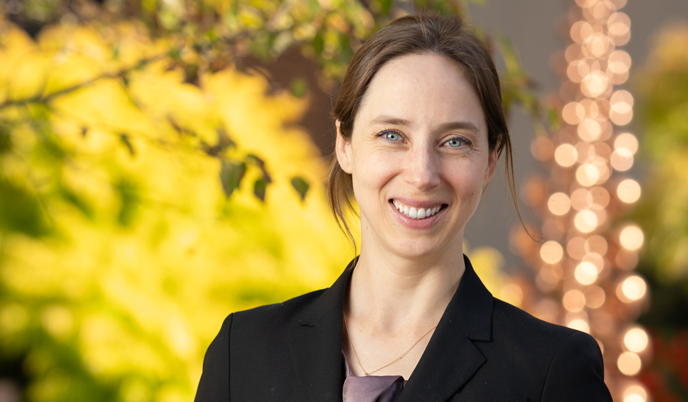
Q&A with Sara McCoy on innovative treatment for Sjögren’s disease
Dr. Sara McCoy, a rheumatologist in the Department of Medicine, is one of the nation’s leading experts on Sjögren’s disease, an autoimmune disorder that affects moisture-producing glands in the eyes, mouth and other parts of the body.
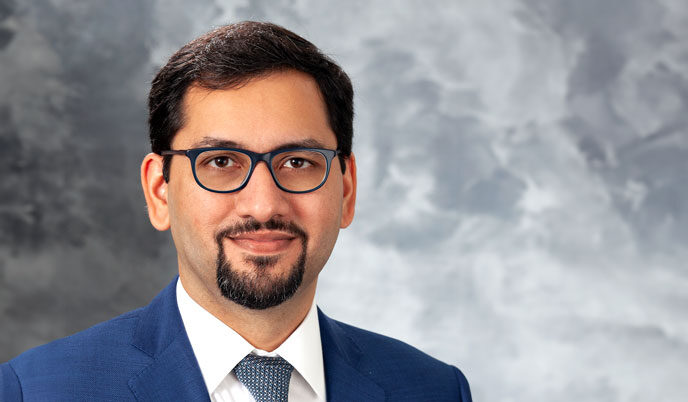
Murtaza named director of Center for Human Genomics and Precision Medicine
Dr. Muhammed Murtaza has become the next director of the Center for Human Genomics and Precision Medicine at the University of Wisconsin School of Medicine and Public Health.

Partnerships Bolster Biotechnology Research and Training
In October 2023, President Joe Biden announced Wisconsin’s selection among 31 Regional Technology Hubs designated by the Economic Development Administration under the 2021 Creating Helpful Incentives to Produce Semiconductors (CHIPS) and Science Act.
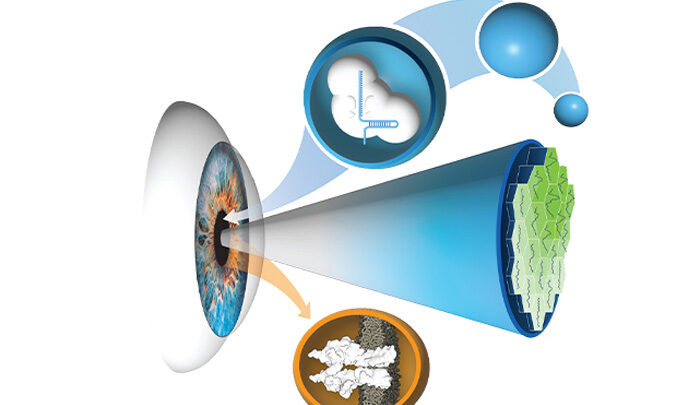
New gene-editing technique holds potential for treating childhood blindness
Using a new experimental technique to fix faulty eye cells, a team led by UW–Madison researchers was able to repair a gene mutation that causes one form of childhood blindness. The scientists showed that their approach worked in lab-grown cells derived from a patient with the currently untreatable inherited disease Leber congenital amaurosis (LCA) and a mouse model that mimics the disease.
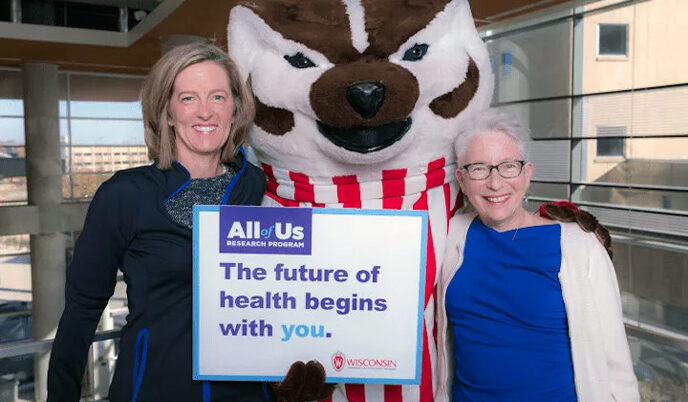
All of Us Research Program returns first genetic results to participants
Participants who donated biosamples, as part of the historic “All of Us” Research Program, may soon see a return of their genetic results.
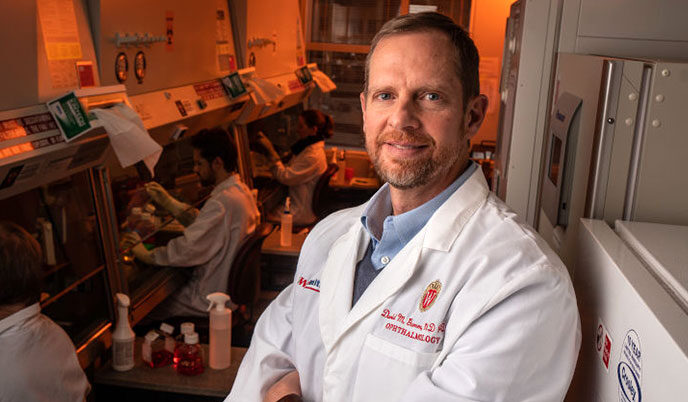
UW researchers devise approach to treat rare, incurable form of blindness
Scientists at the University of Wisconsin‒Madison have published a proof-of-concept method to correct an inherited form of macular degeneration that causes blindness, and that is currently untreatable.

UW launches nation’s first cell therapy trial for kidney transplant patients
For the first time in the United States, a research team will test a personalized cell therapy to treat a common and serious complication facing kidney transplant patients.

First Carbone Cancer Center patient receives experimental therapy to prevent infections during chemotherapy
Michael Toelle, superintendent of the Tomorrow River Schools, recently became the first patient at the University of Wisconsin Carbone Cancer Center to be infused with an experimental cellular therapy designed to prevent infections in leukemia patients.

Blockages in nerve-cell protein ‘factory’ implicated in neurodegenerative disease
A molecular basis underlying the neurodegenerative condition hereditary spastic paraplegia (HSP) has been identified in a study by University of Wisconsin School of Medicine and Public Health researchers.

Wisconsin researchers receive $60 million from NIH for All of Us research program
Four Wisconsin medical and scientific organizations – Marshfield Clinic Research Institute, University of Wisconsin School of Medicine and Public Health, Froedtert & the Medical College of Wisconsin and BloodCenter of Wisconsin, part of Versiti – were awarded $60 million by the National Institutes of Health (NIH) to continue to implement the All of Us Research Program in Wisconsin through 2023, a momentous effort to advance individualized prevention, treatment and care for people of all backgrounds.

UW Carbone Cancer Center study to look for ways to personalize therapy in colorectal cancer
A five-year, $3 million grant from the National Cancer Institute will support UW Carbone Cancer Center physician-researcher Dusty Deming, MD, and colleagues in their pursuit of more effective treatments for colorectal-cancer patients.

Myeloma vaccine research earns $600,000 Leukemia and Lymphoma Society grant
UW Carbone Cancer Center hematologist and myeloma researcher Fotis Asimakopoulos, MD, PhD, was awarded a Leukemia and Lymphoma Society grant to identify patients mostly likely to benefit from a personalized cancer vaccine.